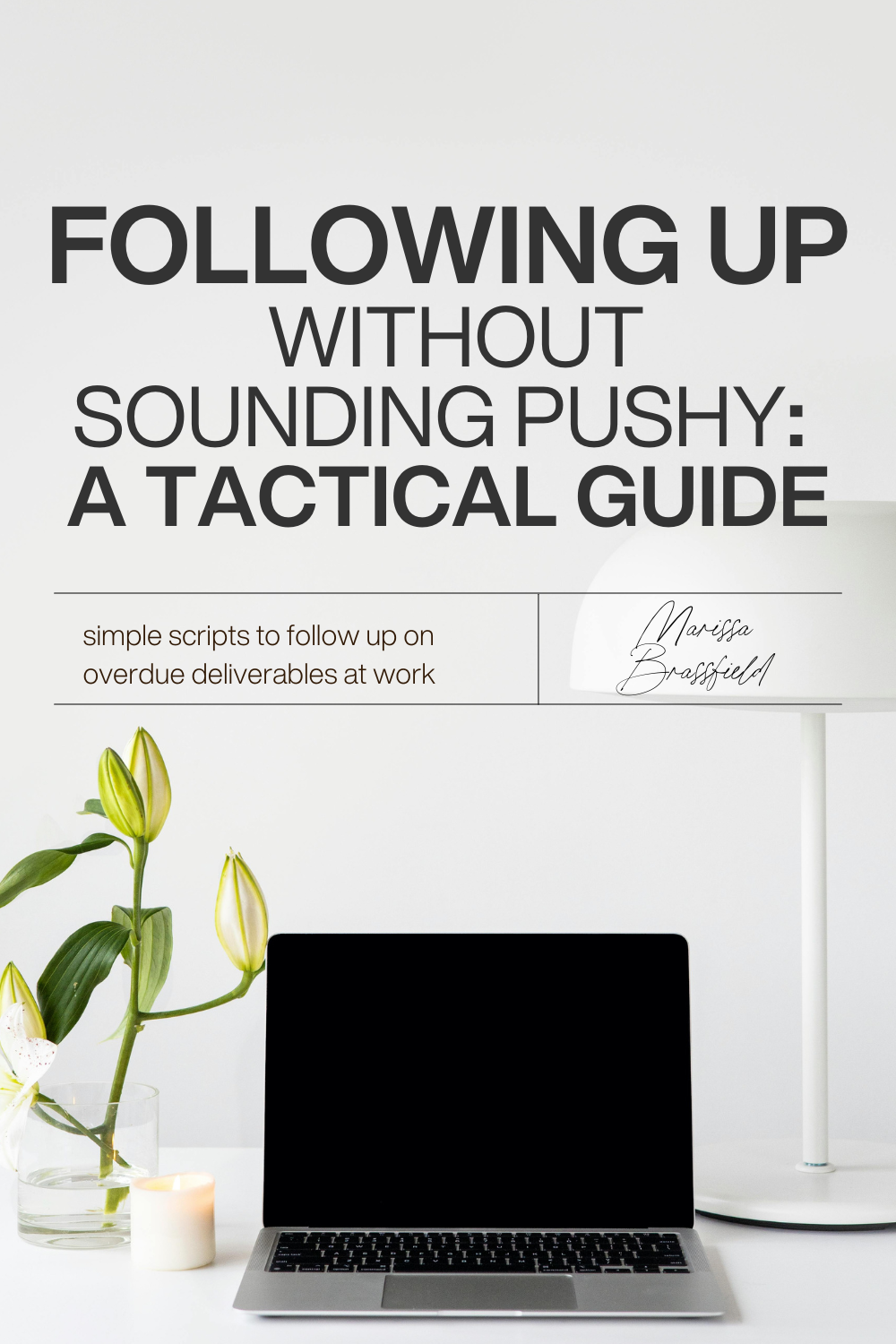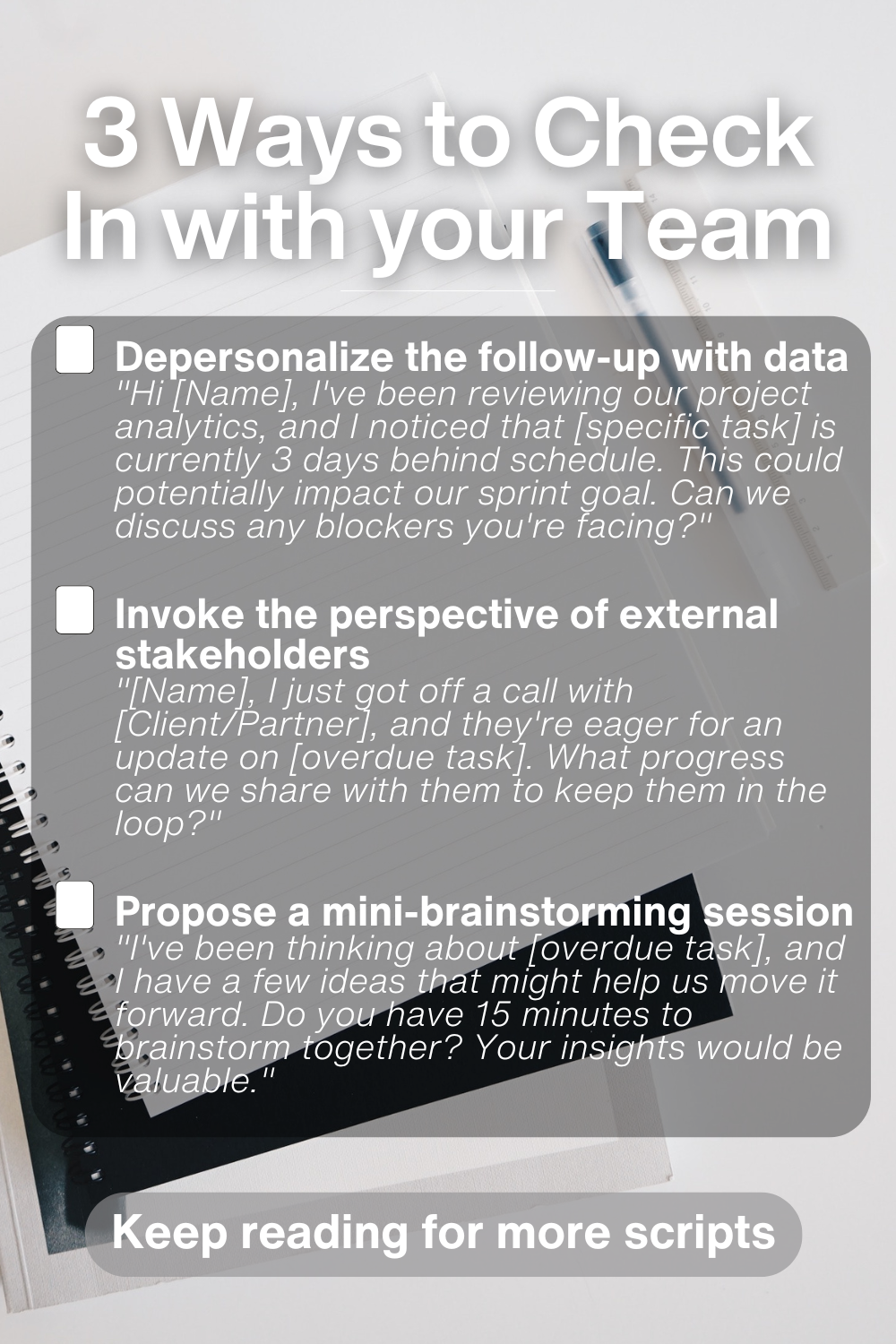

In today's hyper-connected work environment, the ability to follow up effectively is a critical skill. Yet many professionals struggle with this. They fear they'll come across as overbearing or might possibly damage workplace relationships.
I've coached countless executives and team leaders who hesitate to check in on overdue tasks. Some worry they'll be seen as micromanagers, while others fear creating tension within their teams. There's also a common concern about seeming hypocritical, especially if they have their own backlog of tasks.
But here's the reality: proactive follow-ups, when done right, can actually strengthen team dynamics and improve overall productivity. The key is to approach these conversations with empathy, clarity, and a solution-oriented mindset. Here are my top strategies for following up on overdue items while maintaining positive professional relationships.
- Use data to depersonalize the follow-up.
"Hi [Name], I've been reviewing our project analytics, and I noticed that [specific task] is currently 3 days behind schedule. This could potentially impact our sprint goal. Can we discuss any blockers you're facing?"
- Invoke the perspective of external stakeholders
"[Name], I just got off a call with [Client/Partner], and they're eager for an update on [overdue task]. What progress can we share with them to keep them in the loop?"
- Propose a mini-brainstorming session
"I've been thinking about [overdue task], and I have a few ideas that might help us move it forward. Do you have 15 minutes to brainstorm together? Your insights would be valuable."
- Align the task with personal growth opportunities
"[Name], I remember you mentioned wanting to develop your skills in [relevant area]. The [overdue task] seems like a great opportunity for that. How about we review it together? It could be a chance to showcase your capabilities in this area."
- Implement a 'no-questions-asked' extension policy
"I noticed [task] is a bit behind schedule. No worries - life happens! Would you like to use one of your 'no-questions-asked' extensions? If so, what new deadline can you commit to?"
Remember, the art of following up is about maintaining project momentum while preserving team morale. These strategies should be adapted to your specific work culture and individual relationships. The goal is to create an environment where follow-ups are seen not as pressure tactics, but as collaborative efforts to achieve shared success.
By approaching overdue tasks with empathy, creativity, and a focus on solutions, you can turn potentially awkward conversations into opportunities for team growth and improved productivity. After all, effective follow-ups aren't just about getting tasks done - they're about building a culture of mutual support and collective achievement.
The world keeps accelerating. The Simplicity Protocol helps ambitious professionals do less to achieve more through weekly elimination strategies you can implement in 20 minutes or less.


Member discussion